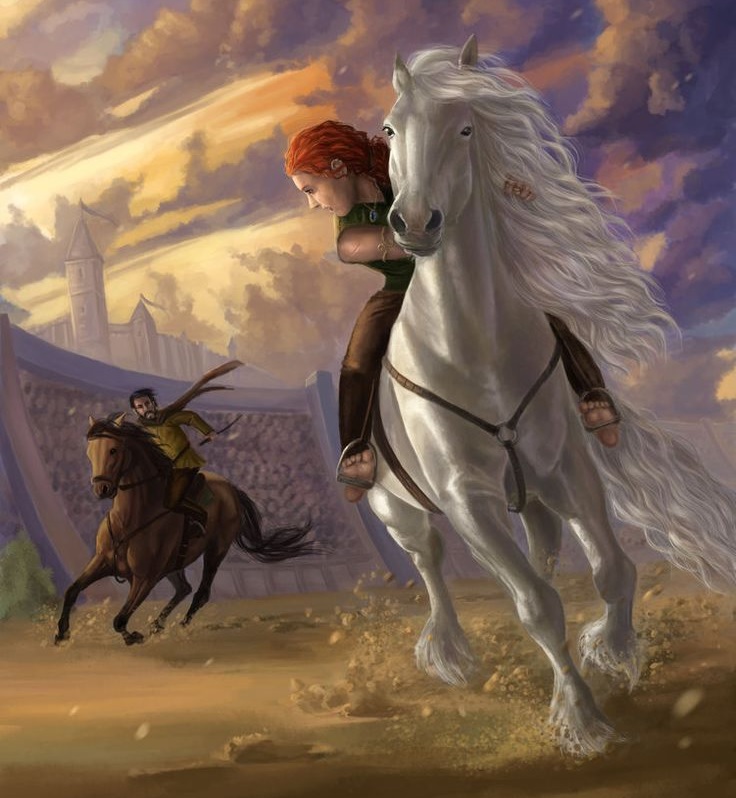Difference between revisions of "Horseracing (sage ability)"
Tao alexis (talk | contribs) |
Tao alexis (talk | contribs) |
||
| Line 10: | Line 10: | ||
== Authority Jockey == | == Authority Jockey == | ||
| − | Once a character has | + | Once a character has attained an authority-status in horseback riding they gain the ability to reduce their effective body weight by the number of knowledge points they have accumulated. This slight disparity can become significant when horses are closely matched. Naturally, a smaller rider offers a distinct advantage. |
| + | |||
| + | : For example, a character weighing 145 lbs. has a horseback riding knowledge of 38 points. While riding, their weight would therefore count as just 107 lbs. above a horse's weight. | ||
| + | |||
| + | Traditionally, lighter riders are favored as they can more effectively utilize the weight subtraction described. Nevertheless, in the interest of maintaining a level playing field among all competitors, weight is typically added to every jockey to achieve an equilibrium. | ||
== Expert Jockey == | == Expert Jockey == | ||
Revision as of 00:21, 11 October 2023
Horseracing is an expert-status sage ability in the study of Horseback Riding that gives the knowledge and finesse required to guide horses towards peak performance in racing, optimizing their physical capabilities. This skill involves discerning a horse's form and musculature, enabling the recognition of its potential to emerge victorious in a race.
Victory in a race hinges on four of a horse's physical attributes: speed, robustness, courage and health, with their respective significance in that order. Additionally, factors such as the rider's weight, the rider's accumulated knowledge points, the track's length and condition, as well as the race type, all play pivotal roles in determining the outcome.
The process involves rolling dice; however, the influence of these dice is intentionally kept minimal and rarely serves as the ultimate decider. In most cases, the race's outcome is determined beforehand, primarily by the combined statistics of the horse and rider. Unfortunately, these crucial numbers remain concealed from all but the Dungeon Master, necessitating an actual race to unveil the victor.
Unskilled Jockey
Riders lacking horseracing skills must possess a minimum of handling I ability. However, in a race, they essentially become burdens that the horse must bear. While it's theoretically possible for an exceptionally superior horse to overcome this handicap and secure victory, such an outcome is improbable.
Authority Jockey
Once a character has attained an authority-status in horseback riding they gain the ability to reduce their effective body weight by the number of knowledge points they have accumulated. This slight disparity can become significant when horses are closely matched. Naturally, a smaller rider offers a distinct advantage.
- For example, a character weighing 145 lbs. has a horseback riding knowledge of 38 points. While riding, their weight would therefore count as just 107 lbs. above a horse's weight.
Traditionally, lighter riders are favored as they can more effectively utilize the weight subtraction described. Nevertheless, in the interest of maintaining a level playing field among all competitors, weight is typically added to every jockey to achieve an equilibrium.
Expert Jockey
In addition to the adjustment of mass discussed above, experts are familiar with numerous tricks to get the most from a horse's speed and courage. In the expert rider's hands, the horse's speed and courage are both counted at 1 point higher than the natural number. Thus, a horse with a speed of 19 would count as a 20 in an expert's hands.
Experts also receive a +3 bonus to their dexterity when participating in a Steeplechase. In an endurance race, involving distances of hundreds of miles, experts are able to increase a horse's robustness by 1 point, while enabling horses to heal 1 hp/day without requiring them to rest. This healing ability is limited to four days per single competition, within the space of the first week. After this time, the horse is too tired to be healed.
Obviously, these additional skills make it far more likely that an expert will win a race, even upon an slightly inferior animal. Therefore, except in local events, all riders in a competition are sure to be experts.
See Horseback Riding
